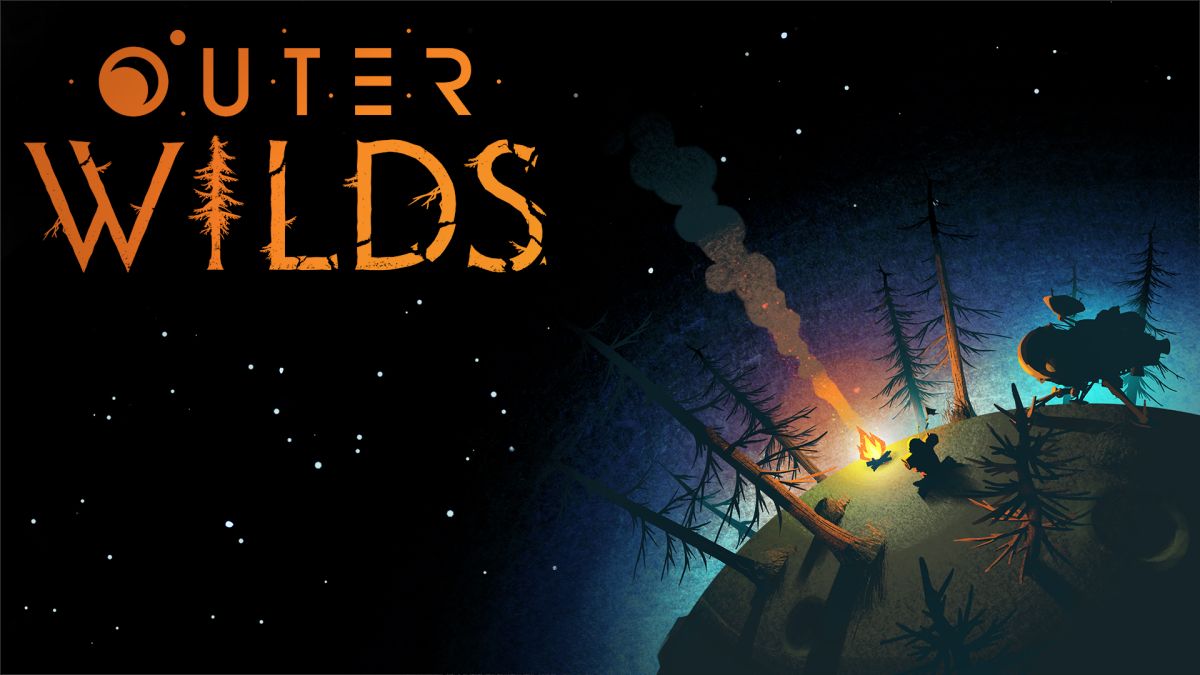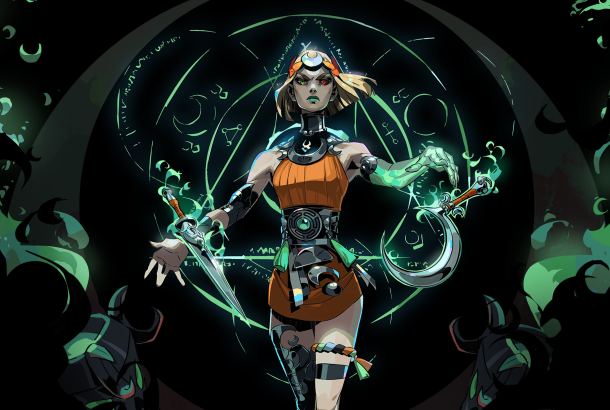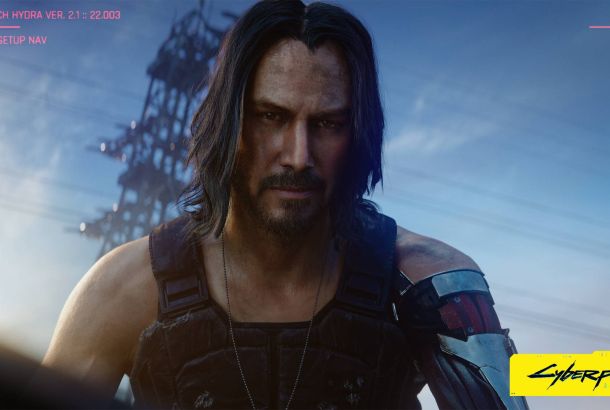A bittersweet ending: Outer Wilds retrospective

Words by Joseph Spencer Russell
As midnight approached, the ambience in ‘The Shed’, our friend’s decked-out outhouse-turned-gaming sanctuary, was idyllic. With a brand-new projector, comfy sofas, ambient lighting, and a plethora of movie memorabilia covering the walls, it was the ultimate haven for pandemic-constrained teenagers seeking an immersive escape.
Fuelled by crunchy snacks and cheap alcohol, I decided to introduce my friends to Outer Wilds, an indie gem I’d immersed myself in months earlier but one that they had never heard of. I took on the role of the gaming tour guide, explaining that the premise of this first-person adventure was that it was set in a hand-crafted solar system full to the brim with countless secrets. Despite initial confusion, conflated with curiosity, they eagerly launched the game, embracing the challenge with open minds.
Within minutes, their faces reflected a blend of questions and confusion. Demands of “Where do I go?” and “What am I supposed to do?” were thrown from the left and right of the room. With a hint of smugness, I simply replied, “You’ll just have to figure it out.”
What ensued was a comical saga of failed attempts; as each of them grappled with the game’s mechanics, struggling to navigate beyond the stratosphere of the starting planet. Amidst the chaos, laughter reverberated through the Shed, with those not wielding the controller revelling in the spectacle. As frustration gave way to determination, a perfect moment unfolded. Once they surmounted the initial hurdle, the game’s allure, which had captivated me months prior, began to charm them as well.

It has been nearly five years since the release of Outer Wilds, and two and a half years since the release of its thrilling DLC Echoes of the Eye. And yet despite the series of games I’ve indulged in, ranging from emotionally exhausting cinematic journeys like that of The Last of Us to fantastical open worlds epitomised by Zelda and Elden Ring, as well as creatively brilliant indie titles such as Disco Elysium, Cocoon, and Hollow Knight, I still find myself returning to the unreturnable game of Outer Wilds.
I refer to it as unreturnable because it is one where upon starting you are expected to navigate an intricately composed solar system with no objective. There is no waypoint to the next quest, no cutscenes leading to realisation. It is a game that I can only give the simplest explanation of, as giving away even minute details risks ruining the entire experience. It is one where knowledge is the most valuable and powerful commodity and yet still relies on the player to learn on their own. Which, in my experience, has given some of the most satisfying and meaningful euphoric gaming moments of all time. What is the trade-off to this? Once you have uncovered its mystery, there is no recovering it.
In a first-person perspective and similar cartoonish graphical design to that of Firewatch, you begin your journey as the base character, comfortingly awakened by a campfire on the planet of Timber Hearth. Your first and only objective is simple: attain the launch codes for your spaceship in the Museum and take off. You are a Hearthian, a friendly, explorative, and peaceful species, who has lived in the shadow of your predecessors – the technologically brilliant, yet extinct species of the Nomai.

All traces of a living Nomai have been long gone, with only their ancient alien ruins, rumours, and fossils remaining. You are left with a homely but albeit precarious spaceship, a space suit, and a few makeshift tools. Combined, these allow you to uncover a multitude of questions and answers relating to the mysterious species who came before you. What you are required to find lies in several mysteries. What did the Nomai discover? Where did they go? And what did they leave behind in the solar system you have found yourself in?
Outer Wilds requires the player to solve satisfying puzzles in order to uncover these mysteries, the answers to which range broadly. Answers that can be found by relying on previous knowledge discovered, certain specific gameplay mechanics; or even simple common sense. The game’s solar system, consisting of several unique planets all orbiting its sun, is waiting to be explored. Its puzzles evolve around this solar system which is unyielding and ever-changing. It leaves you with feelings of wonder and fear (seriously, this game can be scary) and most of all, powerlessness. This is the key aspect of Outer Wilds: you are not meant to conquer, control, or save the Universe, you are meant to observe and uncover its secrets.
To those who have never played it, I usually begin by stating that, if I were to play it, I could finish it with credits rolling within 22 minutes (and yes, this counts for the DLC as well), but if assuming you haven’t, it could take up to 15-30 hours. Unfortunately, once finished, the most captivating moments are also the ones which make it difficult to see it the same way. This is the bittersweet nature that Outer Wilds is synonymous with. You enter with an expansive thirst for what awaits, yet as the ending greets you with existential musical themes and unforgettable knowledge, your only regret is that you cannot experience this journey again the same way.

After completing both the base game and its DLC, I have come to realise that while Outer Wilds lacks traditional replay value, there is a unique way to recapture its initial magic and discovery. Reflecting on my time within the immersive confines of ‘The Shed’, I’ve discovered that witnessing a friend’s fresh playthrough can reignite the same sense of wonder and revelation that I experienced during my first encounter with the game. Each player’s journey unfolds uniquely, with countless variations in puzzle-solving approaches and sequences of events. This inherent diversity makes observing another’s exploration a captivating experience in itself.
I encourage anyone who hasn’t yet experienced Outer Wilds to dive into its rich solar system, and for those who have, to share the adventure with others. Watching a friend navigate the game for the first time offers a fresh perspective and a chance to relive the awe-inspiring moments that make Outer Wilds truly unforgettable.
Outer Wilds certainly deserves every bit of praise it receives. This game involves warming characters, fantastical world-building, outrageously realistic physics-based mechanics, and perhaps some of the most hauntingly beautiful music; which I believe not only rivals the best gaming soundtracks of all time, but that of movies as well. It is a game where the graphics are simple, yet, the scenery is exhilarating. The movement and space flying can be frustrating, but unbelievably satisfying to get the hang of. It is a game which stresses the importance of exploration but can terrify you with what you may find.
So far Mobius Digital are yet to announce, let alone release their next title, but, make no mistake, I am sure whatever they are working on will not be one to be missed. Despite it being five years, I still cannot stress enough that there has been no game since quite like this one.







